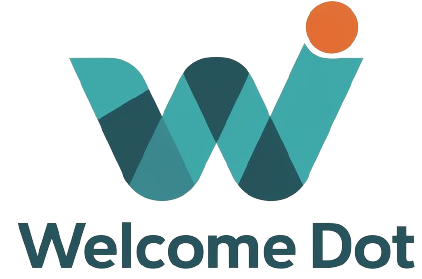
Understanding the Components of a Monthly Mortgage Payment
When purchasing a home, it’s essential to understand that your monthly payment consists of more than just the mortgage itself. While the mortgage payment, which includes the principal and interest, is a significant portion of your monthly expenses, several other factors contribute to the total amount you’ll pay each month. By familiarizing yourself with these components, you can better plan your finances and manage your homeownership responsibilities effectively.
Breaking Down the Monthly Mortgage Payment
Your monthly mortgage payment is made up of several key components, each serving a specific purpose. These components include the loan principal, loan interest, property taxes, homeowners insurance, and, in some cases, mortgage insurance. Understanding how each of these elements contributes to your overall payment can help you make informed decisions when buying a home and managing your monthly expenses.
Principal and Interest: The Core of Your Mortgage Payment
The primary components of your mortgage payment are the loan principal and the loan interest. The principal refers to the amount you borrowed to purchase your home, while the interest is the cost of borrowing that money. The amount of principal and interest you pay each month is determined by the terms of your mortgage, including the loan amount, interest rate, and repayment period.
As you make your monthly payments, a portion of the money goes towards reducing the principal balance, while the rest pays off the interest accrued on the loan. In the early years of your mortgage, a larger portion of your payment will go towards interest, but as time goes on, more of your payment will be applied to the principal, helping you build equity in your home.
Taxes and Insurance: Protecting Your Investment
In addition to the principal and interest, your monthly mortgage payment typically includes property taxes and homeowners insurance. Property taxes are assessed by local governments and are used to fund various public services, such as schools, roads, and emergency services. Homeowners insurance, on the other hand, protects your home and personal belongings against damage or loss due to events like fire, theft, or natural disasters.
To ensure that these expenses are paid on time, your lender may set up an escrow account. Each month, a portion of your mortgage payment is deposited into this account, and when your property taxes and insurance premiums are due, the lender uses the funds in the escrow account to pay them on your behalf. This arrangement helps simplify the payment process and ensures that these critical expenses are not overlooked.
Mortgage Insurance: An Added Cost for Some Borrowers
If your down payment is less than 20% of the home’s purchase price, you may be required to pay mortgage insurance. This insurance protects the lender in case you default on your loan. The cost of mortgage insurance is typically added to your monthly mortgage payment, and it can vary depending on the type of loan you have and the amount of your down payment.
While mortgage insurance can add to your monthly expenses, it also allows many buyers to purchase homes with smaller down payments, making homeownership more accessible. As you build equity in your home and your loan-to-value ratio decreases, you may be able to eliminate mortgage insurance from your monthly payment.
Additional Costs That Can Impact Your Monthly Payment
In some cases, your monthly housing expenses may include additional costs beyond your mortgage payment. These costs can vary depending on the type of property you own and the community in which you live. Two common examples of such expenses are homeowners association (HOA) fees and condominium fees.
Homeowners association fees and condominium fees are charged by community organizations to cover the costs of maintaining shared spaces, amenities, and services. These fees can vary widely depending on the size and amenities of the community, as well as the level of service provided.
HOA and condo fees often cover expenses such as landscaping, snow removal, exterior maintenance, and the upkeep of common areas like pools, fitness centers, and clubhouses. When considering a home purchase, it’s essential to factor in these additional costs, as they can significantly impact your overall monthly housing expenses.
The Benefits of Understanding Your Mortgage Payment Components
By taking the time to understand the various components that make up your monthly mortgage payment, you can make more informed decisions about your home purchase and better manage your finances throughout the life of your loan. This knowledge can help you in several key ways:
Simplifying Financial Planning and Ensuring Timely Payments
When you have a clear understanding of your mortgage payment components, you can more easily plan your monthly budget and ensure that you have sufficient funds available to cover your housing expenses. By setting up an escrow account, you can streamline the payment process for property taxes, homeowners insurance, and mortgage insurance, reducing the risk of missed payments and potential penalties.
Additionally, understanding how your payment is allocated between principal, interest, taxes, and insurance can help you make informed decisions about potential refinancing opportunities or prepayment strategies that could save you money over the life of your loan.
Building Equity and Working Towards Full Ownership
As you make your monthly mortgage payments, you are gradually building equity in your home. Equity refers to the portion of your home’s value that you own outright, and it increases as you pay down your mortgage balance. By understanding how your payments contribute to building equity, you can make strategic decisions about your home, such as whether to make extra principal payments to pay off your mortgage faster or when to consider selling your home to capitalize on your accumulated equity.
Over time, as you continue to make your monthly payments and build equity, you’ll move closer to the goal of full homeownership, where you no longer have a mortgage payment and own your home outright. This knowledge can provide a sense of satisfaction and financial security, knowing that you are making steady progress towards a significant milestone in your financial journey.
See also:
- When Is First Mortgage Payment Due?
- When Is My First Mortgage Payment Due?
- When Is Your First Mortgage Payment Due?
- When Is My First Mortgage Payment Due if I Close June 1st?
- What Income Do You Need for a $800,000 Mortgage | Explained
